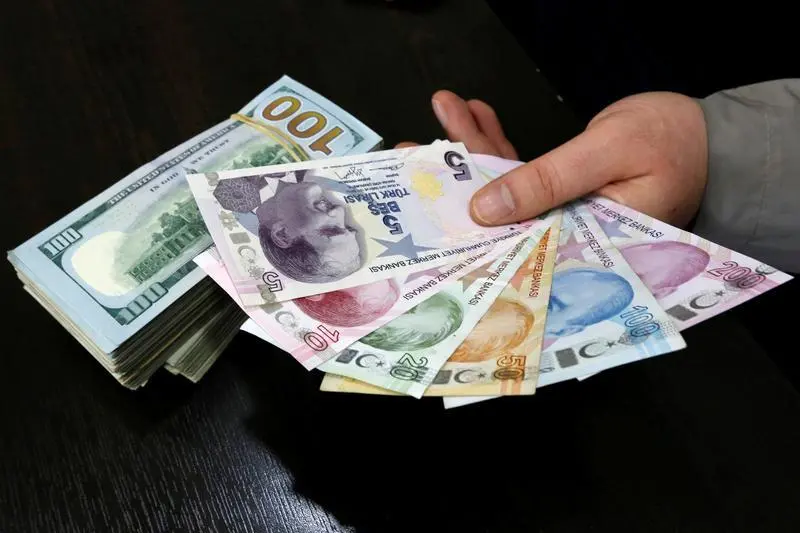PHOTO
Many of Turkey’s biggest corporations are facing pressure as a result of a weaker domestic market, as the country’s currency has come under pressure in foreign exchange markets.
In a report published on Tuesday, ratings agency Moody’s said companies are facing a weak domestic operating environment, with real GDP growth set to decline to 1.5 percent this year from 7.4 percent last year. This decline is expected to continue into 2019, when GDP growth is set to slow to 1.0 percent.
The in-depth report on Turkey said the country was experiencing tighter financial conditions and a weaker exchange rate associated with its high and rising external financing risks.
“[Turkish conglomerates] Dogus and Yasar are the most vulnerable to a weakening economy and depreciating lira,” the report said.
“This is because Dogus Holding A.S. (B1 review for downgrade) and Yasar Holding A.S. (Caa1 negative) are exposed to industries that are susceptible to an economic downturn and rely on short-term, foreign-currency debt,” the report said.
Dogus Holding is an investment holding company with interests in seven sectors including construction, retail, tourism, media, energy and renewable. It also has main dealership franchises for several major car manufacturers. Moody’s said that it “has weak liquidity due to the diminished value of publicly-listed stakes and reduced dividend inflows”. It said a reduced amount of cash coming into the business and a high percentage of debt maturing over the next two years had weakened its credit position, but added that it was aware the firm is in the process of trying to refinance “a large portion of short-term debt”.
Yasar Holding, which is a consumer products group, also has a high exposure to short-term debt, with 27 percent of its loans due to mature by March next year and a $250 million bond due to be repaid in May 2020. The report said that said that depreciation of the lira would increase both the firm’s debt burden and servicing costs.
Moody’s said seven more Turkish companies are rated one notch above the government's Ba3 bond ratings on the back of their market leader positions, material offshore revenues or revenues linked to hard currency, active currency risk-management policies, strong balance sheets and healthy liquidity.
These include beverages firms Efes and Coca-Cola Icecek, manufacturer Sisecam, investment companies Koc Holding and Oyak, oil refiner Tupras and mobile operator Turkcell.
However, their ratings are constrained by Turkey's Ba2 foreign currency bond ceiling because they are substantially exposed to the domestic sovereign environment.
The conditions are expected to prevail for the next 18 months, the report said: “While not our base case, a reduction in corporate access to borrowing is the greatest risk to credit quality should access to external funding for the broader financial system and the economy be constrained.”
Data from Thomson Reuters Eikon shows that the Turkish Lira has declined in value by more than 40 percent since the start of this year. Reuters reported on Tuesday that the country’s central bank is expected to raise interest rates when its monetary policy committee meets tomorrow.
Further reading:
- Turkey signs agriculture, oil exploration deals with Sudan
- Erdogan has limited options to save Turkey from financial crisis
- Shaky foundations: Decline in Turkish lira value could spell trouble for country's contractors
- Lack of confidence: Declining value of Turkish lira presents challenges for country's banks
- Graphic: Turkish Lira fails to rally despite new measures
(Writing by Imogen Lillywhite; Editing by Michael Fahy)
(imogen.lillywhite@thomsonreuters.com)
Our Standards: The Thomson Reuters Trust Principles
Disclaimer: This article is provided for informational purposes only. The content does not provide tax, legal or investment advice or opinion regarding the suitability, value or profitability of any particular security, portfolio or investment strategy. Read our full disclaimer policy here.
© ZAWYA 2018





















